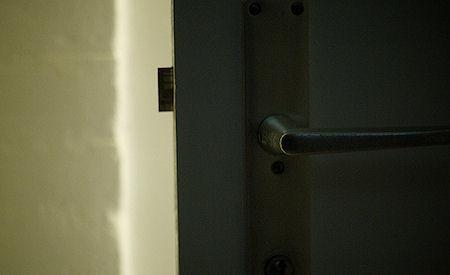 image credit
image creditLike information in a book, unfolding events are stored in human memory in successive chapters or episodes. One consequence is that information in the current episode is easier to recall than information in a previous episode. An obvious question then is how the mind divides experience up into these discrete episodes?
A new study led by Gabriel Radvansky, a professor in the Department of Psychology at Notre Dame, shows that the simple act of walking through a doorway creates a new memory episode, thereby making it more difficult to recall information pertaining to an experience in the room that's just been left behind.
(via Look At This...)The Presurfer
